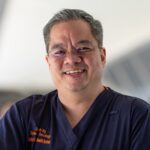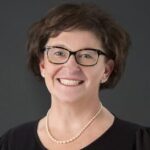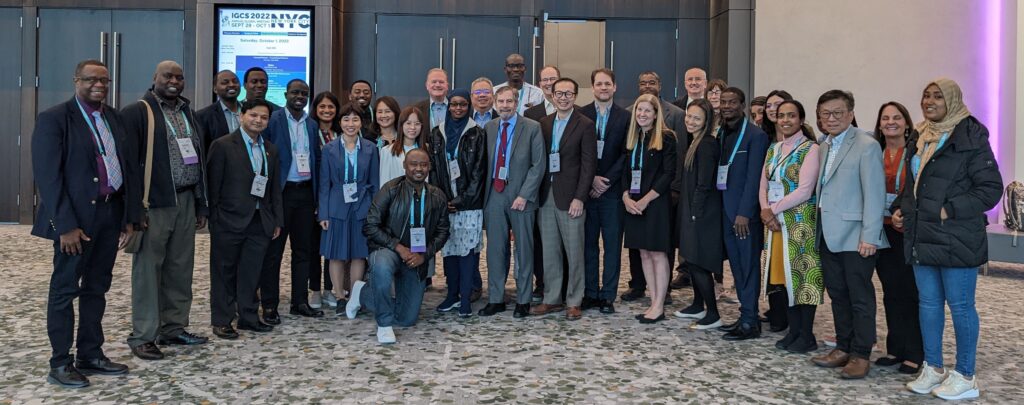Dear IGCS Members and Friends,
The IGCS Global Gynecologic Oncology Fellowship Program is expanding to even more locations – bringing subspecialty training to regions of the world that urgently need skilled professionals. The newest training sites adopting our curriculum this past year are in Haiti, Rwanda, and Nigeria (Enugu, Ibadan, Lagos, and Zaria). At the time of this release, we’ve just agreed to begin in Malawi.
The news of our expansion comes on the very day we mark the two-year anniversary when the World Health Organization (WHO) adopted of the global strategy to accelerate the elimination of cervical cancer. November 17th marks Cervical Cancer Elimination Day of Action — a call to action that IGCS members have responded to with gusto! A common theme from members’ feedback on their participation in the IGCS Project ECHO® Virtual Tumor Boards is that it is the highlight of their month and indeed their careers!
Last month, during the World Health Summit in Berlin, The Charité’s Department of Gynaecology hosted a meeting of WHO leaders and stakeholders — including IGCS leaders — to discuss regional capacity building in gynecologic oncology. During this meeting, Dr. Lameck Chinula (a leading clinician-researcher focused on cervical cancer prevention and control in Malawi) spoke to us about expanding the Global Curriculum to his country, expressing their desire and readiness for formalized training in Malawi. After several conversations about the capacity and resources at the Ministry of Health Kamuzu Central Hospital, we decided the site is suitable for the program. Dr. Groesbeck Parham and Dr. Michael Hicks volunteered to serve as Global Curriculum International Mentors for Malawi as a direct and immediate demonstration of the IGCS’ readiness to support Dr. Chinula and Malawi.
About the Global Gynecologic Oncology Fellowship Program
Following a web-based curriculum, the two-year program is adaptable to each site’s specific needs and resources with hands-on surgical training and monthly Project ECHO® Virtual Tumor Boards. In just five years, 27 fellows have completed their training with another 42 currently enrolled. To date, our fellows have performed 8,400+ surgeries, including 1,100+ radical hysterectomies in their local hospitals.
Propelled by a team of volunteer mentors, regional faculty and highly motivated fellows, this program is gaining momentum and increasing capacity at pace. The curriculum is being followed at 20 training sites in the Bahamas, China, Ethiopia, Fiji, Guatemala, Haiti, India, Jamaica, Kenya, Nepal, Mozambique, Nigeria, Qatar, Rwanda, Uganda, Vietnam, and Zambia. Our gratitude to goes to the Global Curriculum Committee Leadership, Dr. Kathleen Schmeler, Immediate Past Chair, and Drs. Linus Chuang and Thomas Randall, Chair Elects.
As Dr. Bethel Dereje (an IGCS-trained fellow practicing in Ethiopia) explained, “These institutions are not only sites for the fellows to practice and learn but they are the hub for many medical students, residents, and nursing students. Within one year, the number of patients referred to our center increased significantly since our graduates were able to diagnose and identify which patients to treat and which to refer. If supporting a single site can improve the lives of many families (not only women), supporting a few more sites will definitely change many more.”
Cervical Cancer Elimination Day of Action
The WHO global strategy towards eliminating cervical cancer recommends a comprehensive approach to cervical cancer prevention and control. The training provided by the IGCS Global Curriculum is vital to the successful implementation of this strategy. The increased knowledge and capacity for research will lead to the collection of cancer data and registries, empowering patient advocates with valuable information to guide policy on issues like HPV vaccination.
On this Cervical Cancer Elimination Day of Action, we encourage and challenge each of you reading this message to consider how you can respond to the call. It is within our reach to end cervical cancer as a public health problem if 90% of girls are vaccinated, 70% of women are screened, and 90% of women receive treatment. If we don’t act, cervical cancer deaths will rise by nearly 50%, with low- and middle-income countries bearing the burden.
If you’d like to learn more about the IGCS Global Gynecologic Oncology Fellowship Program or volunteer as a mentor for our virtual tumor boards, please contact the IGCS Mentorship and Training Program Manager, Susan Ralph at susan.ralph@igcs.org.
Sincerely,

Joseph Ng, MD
IGCS Global Curriculum
Committee Chair

Keiichi Fujiwara, MD, PhD
IGCS President

Mary Eiken, MS
IGCS CEO

The IGCS Global Curriculum team at the 2022 IGCS Annual Global Meeting in New York after discussing the rapid growth of and potential for the program with Dr. Ted Trimble, Director of the National Cancer Institute’s Center for Global Health and Dr. Doug Lowy, Acting Director and Principal Deputy Director of the National Cancer Institute, National Institutes of Health.


